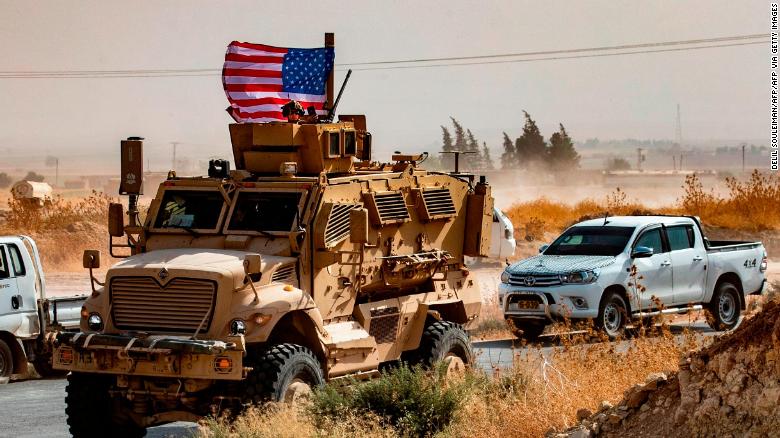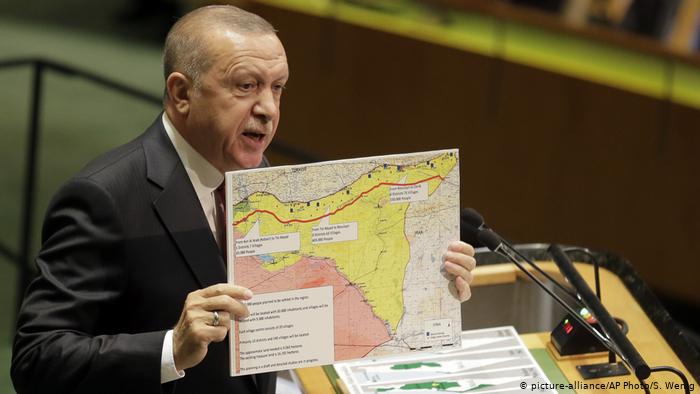
Syria TV reported on October 7 that that night in northeastern border of Syria, Turkish troops launched a military operation targeting the position of the Syrian Democratic Forces led by the Kurdish armed forces. The White House issued a statement on the previous day, announcing it will not support or be involved in the Turkish military operations and the US troops will withdraw from the relevant regions.
Analysts pointed out that the US has actually dumped the Syrian Kurdish armed forces, which once cooperated with the US in the fight against the extremist organization "Islamic State". This marks a major shift in US policy, which might help reduce the burden of its troops and easing relations with Turkey, but have a negative impact on the regional situation.
The US wants to shrug off the burden
According to a statement by the White House on October 6, the "Islamic State" has been eliminated and the US military will withdraw from the relevant region. The "Islamic State" militants captured in the region in the past two years will be handled by Turkey. An anonymous senior US government official said at a briefing on October 7 that about 50 to 100 US troops will withdraw from north Syria but still stay in Syria.
The US and Turkey have huge differences on how to treat Syrian Kurdish armed forces for a long time. The US regards it as a counter-terrorism partner while Turkey regards it as a terrorist organization. Some American media said that the withdrawal of the US troops is equivalent to "green-lighting" Turkey to attack the Kurdish armed forces in Syria.
The intention to dump the burden is considered to be the main reason for the US to change its position. Sebnem Udum, associate professor at the Department of International Relations of the Hacettepe University in Turkey, said that the US move originated from US President Donald Trump’s adjustment of the US Middle East policy. The US military presence in the region has consumed a lot of resources while Trump tends to save resources. Serkan Demirtas, a political commentator of Hurriyet Daily News, believes that Trump is busy with the new round of campaign and eager to get out of the Syrian quagmire. He also hopes to get rid of thousands of the captured "Islamic State" members, which are "a hot potato" and "a burden" for the US, said Demirtas.
US-Turkey relations may ease
As a big country in the Middle East and a member of NATO, Turkey has important geostrategic value to the US. However, in recent years, there have been a series of problems in the US-Turkey relations. Incidents including the extradition of the local religious figure Gülen who was accused by the Turkish side of planning the attempted coup in 2016, and Turkey’s purchase of the S-400 air defense missile system from Russia, have led to continued tension in relations between the two countries. The Kurdish issue is also one of the main differences between the two sides. The two countries agreed to establish a "safe zone" in the northeastern part of Syria in August, but so far, no agreement has been reached on the details.

In addition, the Turkish Presidential Palace issued a statement on October 6 that President Erdogan exchanged views on the establishment of a "safe zone" during a telephone call with Trump. The two agreed to meet and talk in Washington in November. Analysts pointed out that Erdogan’s visit to the US is a sign of warming in bilateral relations.
Unstable regional situation
Although the withdrawal of troops from northern Syria may help the US "dump burden" and win over Turkey, many people in the US believe that this act of betraying allies not only undermines the credibility of the US, but also may have an adverse impact on the fight operations against terrorism in the Middle East.
The departure of the US troops will create power vacuum in some parts of Syria, which may provide chance for the "Islamic State" to make a comeback, said Mark Dubowitz, the executive director of the Foundation for Defense of Democracies, a US-based think tank. Republican Senator Lindsey Graham criticized that the move has given a stimulant to the extremist forces in the region, making it harder for the US to recruit counter-terrorism forces in the future.
Meanwhile, Turkey’s military operations in northern Syria are also facing many uncertainties. The Kurdish People’s Protection Units in north Syria said on October 7 that it will resolutely defend the security of northern Syria at all costs.













